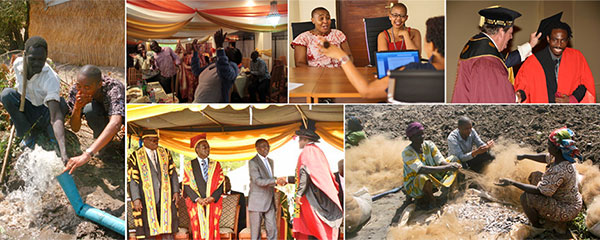The Drugs, Security and Democracy
program, supporting research in Latin America and the Caribbean
relevant to drug policy across the social sciences and related
disciplines, selected its 2014 cohort, providing dissertation and
postdoctoral fellowships to international scholars for fourteen projects in English, Portuguese, and Spanish.
The Dissertation Proposal Development Fellowship also announced its 2014 cohort. Seventy-two fellows will develop research in one of six interdisciplinary fields:
Development and Migration, Immigrants and Their Homeland Connections,
Making the Biotech Body, Modernity and Autochthony, Oceanic Studies, and
State Building and Governance in Retrospect and Prospect.
A number of new SSRC Working Papers are available for PDF download: The Conflict Prevention and Peace Forum published the first in a series of CPPF Working Papers on Women in Politics. The African Peacebuilding Network launched its own working papers series to address gaps in peacebuilding knowledge. And the Drugs, Security and Democracy
program continued its series of DSD Working Papers on Research Security.
Measure of America released its latest human development report, A Portrait of Sonoma County
[PDF available]. Launched in California at a public meeting of the
Sonoma County Board of Supervisors, the report closes with an Agenda for
Action—a set of recommendations to address disparities in health,
education, and income—and a Pledge of Support by over sixty community
actors who have committed to building a comprehensive and inclusive
response. North Bay Public Media’s KRCB radio covered the report’s development [audio available].
Measure of America codirector Kristen Lewis spoke at a Disconnected Youth Summit
in Arizona that brought together local business, civic, education, and
foundation leaders to address the program’s findings on youth
disconnection in Phoenix, suggesting strategies to reduce it in an interview with local National Public Radio affiliate KJZZ.
Leon Sigal, director of the Northeast Asia Cooperative Security Project, wrote for the National Interest about strategic impatience in Pyongyang over stalled US negotiations and briefed World Politics Review on the failure of efforts to isolate North Korea.
China Environment and Health Initiative director Jennifer Holdaway called for integrated environmental health policies that address China's regional differences and inequalities in a coauthored piece for chinadialogue.net.
Journalist Peter Manseau, a New Directions in the Study of Prayer grantee, covered mindfulness apps for Al Jazeera America in “The Quantified Soul,” a story developed with SSRC support.
African Peacebuilding Network director Cyril Obi contributed an article to the latest Review of African Political Economy: “Oil and the Post-Amnesty Programme (PAP): What Prospects for Sustainable Development and Peace in the Niger Delta?”
Renata Segura, associate director of the Conflict Prevention and Peace Forum, coauthored a chapter in Political Institutions of Latin American Democracies,
now out from Huygens Editorial: “Constitution-Making Processes and
Democracy: Clues for Understanding the New Latin American
Constitutionalism” [in Spanish].
President Ira Katznelson received the 2014 Hillman Prize for Book Journalism for his volume Fear Itself: The New Deal and the Origins of Our Time, as presented by journalist Ta-Nehisi Coates [video]. He discussed that work in depth on an episode of PBS program The Open Mind, taped before the death of host Richard Heffner [full episode stream].
Board member Margaret Levi was selected to receive the 2014 William H. Riker Prize in Political Science, in recognition of a body of research that exemplifies and advances the scientific study of politics.
Visiting Committee member Jonathan Fanton moderated “Are the People the Problem?,”
a discussion with Jane Mansbridge and Paul Starr on the role of human
behavior in the political process, the concluding program in a series of
conversations on the Anxieties of Democracy presented with the Roosevelt House Public Policy Institute at Hunter College [video available].
Transregional Research Postdoctoral fellow Kevin Schwartz (2013) organized an Inter-Asian Connections conference, “The Wide World of Persian: Connections and Contestations, 1500 until Today,” cohosted by the US Library of Congress and the Roshan Institute of Persian Studies at the University of Maryland.
Bill O’Neill, director of the Conflict Prevention and Peace Forum, led sessions at a human rights workshop
for young journalists and editors from media institutions in the Middle
East and North Africa, cohosted by the Norwegian Centre for Human
Rights and the Al Jazeera Media Training and Development Center at Al
Jazeera headquarters in Doha.
The Education Research Program continued faculty consultations for the Measuring College Learning Project, convening a group of business scholars to discuss ways to articulate and measure learning outcomes for business undergraduates.





